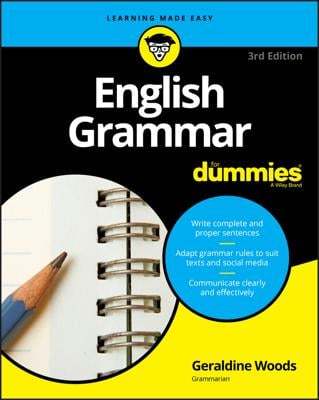Whenever English grammar gives you a set of rules that make sense, you know it’s time for the irregulars to show up. Not surprisingly, then, you have to create a few common comparisons without -er, -est, more/less, or most/least.
Good, bad, well in English grammar
These comparisons evaluate quality. The first word of each line provides a description. The second word shows you that description when two elements are beings compared. The last word is for comparisons of three or more.
Good, better, best
Bad, worse, worst
Well, better, best
Time to visit good, bad, and well when they’re on the job:
Although Michael’s trumpet solo is good and Roger’s is better, Lulu’s trumpet solo is the best of all.
Lulu’s habit of picking at her tattoo is bad, but Ralph’s constant sneezing is worse. Eggworthy’s tendency to crack jokes is the worst habit of all.
Lola sings well in the shower, but Max sings better in the bathtub. Ralph croons best in the hot tub.
What’s the difference between good and well? Good is an adjective and describes nouns (people, places, things, ideas). Well is an adverb and describes verbs (actions or states of being), except when you're talking about health.
Answer this question in correct English (and then correct the question itself).
Who’s the baddest kid in the playground?
Answer: The worst (not baddest) kid in the playground is Roger, unless Lola is in one of her moods. The correct question is Who’s the worst kid in the playground?
Here’s another:
Who plays more better blues?
Answer: No one. Use more or better, but not both, to make the comparison. Other ways to word the question include:
Who plays better blues — Michael or Lulu?
Who plays the best blues?
Who plays the blues best?
Of the two saxophonists, who plays better blues?
Grammatically correct uses of little, many, much
These are the measuring comparisons, words that tell you about quantity. The first word on each line is the description, the second creates comparisons between two elements, and the last word applies to comparisons of three-plus elements.
Little, less, least
Many, more, most
Much, more, most
Check out these words in action (actually, in sentences):
Lulu likes a little grape jelly on her pizza, but Eggworthy prefers less exotic toppings. Of all his creations, Lulu likes chocolate pizza least.
Roger spies on many occasions, but he seldom uncovers more secrets than his brother Al. Lola is the most successful spy of all.
Anna has much interest in mathematics, though she’s more devoted to her trumpet lessons. Of all the musical mathematicians I know, Anna is the most likely to succeed in both careers.
Many or much? How do you decide which word is needed? Easy. Many precedes plurals of countable elements(many crickets or shoes, for example) and much precedes words that express qualities that may not be counted, though these qualities may sometimes be measured (much noise or sugar, for instance).
Which sentence is correct?
A. Anna and Michael studied together for the algebra final, but Michael is the least prepared.
B. Anna and Michael studied together for the algebra final, but Michael is less prepared.
Answer: Sentence B is correct. Less is the word you want when comparing two elements. Because you’re comparing only Anna and Michael, less triumphs over least, which is a good word when you’re comparing Anna, Michael, Lola, and the rest of the study group — in other words, three or more elements.

